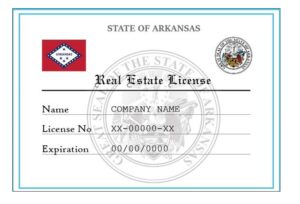The best real estate market in Arkansas offers a thriving environment, presenting diverse opportunities for aspiring real estate agents to succeed in both urban and rural settings. Real estate agents are crucial in guiding clients through the complexities of buying, selling, and managing properties, making them indispensable in the market. To embark on this rewarding career, it’s essential to understand how to get a real estate license in Arkansas. This involves meeting specific requirements, including pre-license education, passing the real estate exam, and finding a sponsoring broker.
Additionally, understanding real estate laws and taxes in Arkansas is vital for maintaining compliance and providing excellent service to clients. This includes knowing crucial details such as when are real estate taxes due in Arkansas, which can impact property transactions and client decisions. With the right preparation and dedication, becoming a real estate agent in Arkansas can be a fulfilling and lucrative career choice.
Educational Requirements
To become a real estate agent, you generally need a high school diploma or equivalent, complete a state-approved pre-licensing course, and pass a licensing exam. Some states also require background checks and continuing education. Requirements vary by state, so it’s important to check specific local regulations. Here are some details about the essential requirements for a real estate agent.
High school diploma or equivalent
For individuals aspiring to become real estate agents in Arkansas, the primary educational requirement is a high school diploma or its equivalent. This foundational level of education provides the necessary groundwork for pursuing further licensing requirements and understanding the intricacies of real estate laws in Arkansas.
Pre-licensing education
To obtain a real estate license in Arkansas, aspiring agents must complete a mandatory 60-hour pre-licensing education course. This comprehensive program covers key aspects of real estate, including state-specific laws, ethical practices, and negotiation techniques. Successfully completing this course is a crucial step towards eligibility to sit for the Arkansas real estate exam, paving the way for a rewarding career in the state’s thriving real estate market
Accredited schools
Accredited schools are pivotal in the journey toward becoming a real estate agent in Arkansas. These institutions offer pre-licensing education courses approved by the Arkansas Real Estate Commission (AREC), ensuring compliance with state regulations. Choosing the right school is critical, as it provides a solid foundation for success in the real estate industry. Prospective agents should consider factors such as course content, delivery methods, duration, cost, instructor qualifications, and student support services when selecting an educational provider. By completing a pre-licensing education course from an accredited school, aspiring agents gain the knowledge and skills needed to obtain their real estate license in Arkansas and thrive in the state’s real estate market.
Read our paragraph on Essential Checklist For Buying Land In The USA
Licensing Process
Obtaining a real estate license in Arkansas is a critical step for anyone aspiring to enter the state’s real estate industry. The licensing process ensures that agents are well-equipped with the necessary knowledge and skills to assist clients effectively in buying, selling, or renting properties. This process includes completing required education, passing a licensing exam, and adhering to state-specific regulations, all of which aim to uphold high standards of professionalism and ethical practice in the real estate market.
Complete Pre-licensing Course
In the journey to become a real estate agent in Arkansas, completing a pre-licensing course is vital. These courses cover essential topics like real estate laws, ethics, and negotiation skills. By finishing this course, aspiring agents gain the necessary knowledge to pass the licensing exam and succeed in the Arkansas real estate market. It demonstrates dedication to professionalism and compliance with state regulations, crucial for a successful career in real estate in Arkansas.
Pass the Real Estate Exam
Once you’ve completed your pre-licensing education, the next step to becoming a real estate agent in Arkansas is passing the real estate exam. Administered by the Arkansas Real Estate Commission (AREC), this exam tests your knowledge of state-specific real estate laws, regulations, and practices. Prepare by studying course materials, attending exam prep courses, and taking practice exams. Passing this exam signifies your readiness to obtain your real estate license in Arkansas and embark on your career as a licensed real estate agent in the state.
Apply for Real Estate License in Arkansas
After completing your pre-licensing education and passing the real estate exam, the next step to becoming a real estate agent in Arkansas is applying for the license. This involves submitting an application to the Arkansas Real Estate Commission (AREC) along with required documents and fees. Ensure you meet all eligibility requirements and follow the application instructions carefully. Once approved, you’ll receive your real estate license, allowing you to practice in Arkansas’s real estate market.
Post-Licensing and Continuing Education
18-hour post-license course
After obtaining your real estate license in Arkansas, the next step is to complete an 18-hour post-license course. This course, mandated by the Arkansas Real Estate Commission (AREC), provides additional knowledge and skills essential for success in the real estate industry. Topics covered include advanced real estate principles, ethical practices, risk management, and professional conduct. By fulfilling this requirement, you demonstrate your commitment to continuous learning and compliance with state regulations. This sets the stage for a rewarding career as a real estate agent in Arkansas.
Annual continuing education (7 hours)
Licensed real estate agents in Arkansas must complete seven hours of annual continuing education to stay current in the industry. These courses cover updates to real estate laws, regulations, market trends, ethics, and best practices. By participating in continuing education, agents enhance their knowledge and professionalism, ensuring they provide excellent service to clients while staying compliant with state regulations. Committing to annual education is vital for maintaining licensure and personal growth in the Arkansas real estate industry.
Starting Your Career
To kickstart your career as a real estate agent in Arkansas, begin by selecting a brokerage that aligns with your goals and values. Develop a concise business plan outlining your objectives, target market, and marketing strategies. Effective networking and digital marketing efforts will help you establish your presence and attract clients in the competitive Arkansas real estate market.
Legal and Ethical Responsibilities
As a real estate agent in Arkansas, you must uphold strict legal and ethical standards. Familiarize yourself with the Code of Ethics, emphasizing honesty, integrity, and transparency. Understand Arkansas real estate laws to ensure compliance and avoid common legal issues such as contract disputes and misrepresentation. By adhering to these standards, you can maintain professionalism and trust in the Arkansas real estate market.
Role and Responsibilities for Real Estate Agent
A real estate agent plays a vital role in the property market, serving as the intermediary between buyers, sellers, and renters. They provide expert guidance and support throughout the real estate transaction process, ensuring that clients navigate the complexities of buying, selling, or renting properties with ease and confidence.
Client Representation
One of the primary responsibilities of a real estate agent is to represent clients in their real estate endeavors. Whether assisting buyers, sellers, or renters, agents ensure their clients’ interests are well-represented throughout the transaction process. This involves understanding clients’ needs, preferences, and financial capabilities to provide tailored advice and support. By acting as advocates, real estate agents help clients navigate the complexities of the property market, making informed decisions that align with their goals.
Property Marketing
Effective property marketing is essential for attracting potential buyers or renters. Real estate agents employ various strategies to list and promote properties, utilizing online listings, social media, open houses, and traditional advertising methods. They create compelling property descriptions, take high-quality photographs, and sometimes produce virtual tours to showcase properties in the best light. By leveraging their marketing expertise, agents ensure maximum exposure for properties, increasing the likelihood of a successful sale or lease.
Negotiation
Negotiation is a critical skill for real estate agents, as they negotiate the terms of sale, purchase, or lease agreements on behalf of their clients. This involves securing favorable prices, terms, and conditions that align with clients’ best interests. Skilled negotiators can bridge the gap between parties, facilitating agreements that satisfy both buyers and sellers. By advocating for their clients during negotiations, real estate agents help achieve optimal outcomes in real estate transactions.
Market Analysis
Conducting thorough market analysis is a vital aspect of a real estate agent’s role. Agents research and analyze market trends, property values, and comparable sales to provide clients with accurate and up-to-date information. This market insight enables clients to make informed decisions regarding pricing, offers, and investment opportunities. By staying informed about the ever-changing real estate landscape, agents offer valuable guidance that helps clients navigate the market with confidence.
Documentation
Real estate transactions involve extensive documentation, including contracts, deeds, and lease agreements. Real estate agents are responsible for preparing, reviewing, and ensuring the accuracy and compliance of these legal documents. Attention to detail is crucial, as any errors or omissions can lead to legal complications or delays. By handling the paperwork meticulously, agents ensure a smooth transaction process, minimizing risks for their clients.
Client Support
Supporting clients throughout the entire transaction process is a cornerstone of a real estate agent’s role. From the initial consultation to the closing, agents guide clients through each step, addressing any questions or concerns that arise. This support includes coordinating property showings, assisting with inspections, and facilitating communication between all parties involved. By providing continuous assistance and reassurance, real estate agents help alleviate the stress and uncertainty often associated with real estate transactions.
Networking
Building and maintaining a network of industry professionals is essential for real estate agents. These connections include mortgage brokers, home inspectors, attorneys, contractors, and other real estate agents. A robust network allows agents to provide clients with comprehensive services and reliable referrals. This ensures all aspects of the transaction are handled efficiently, enhancing the overall experience for clients. Collaboration with other professionals also helps agents stay informed about industry developments and best practices.
Definition and duties of Real Estate Agent
As a real estate agent in Arkansas, your role involves acting as a mediator between buyers and sellers, facilitating property transactions. Duties include conducting market research, marketing properties, arranging showings, negotiating offers, and guiding clients through the closing process. Staying updated on real estate laws in Arkansas is essential for ensuring legal compliance and providing accurate information to clients.
Skills and qualities needed:
To succeed as a real estate agent in Arkansas, you need excellent communication and interpersonal skills to effectively interact with clients and negotiate deals. Attention to detail is crucial for managing paperwork and contracts accurately. In the best real estate market in Arkansas, adept adaptability and problem-solving skills. Real Estate’s Markets are essential for navigating challenges in this dynamic industry. A thorough understanding of real estate laws, including knowledge of real estate taxes, is essential. Familiarity with licensing requirements in Arkansas further enhances the ability to provide comprehensive service to clients.
Advanced Opportunities
Specializations:
As a real estate agent in Arkansas, you can specialize in residential, commercial, or other sectors of the market. Focusing on a specific area allows you to become an expert and better serve your clients’ needs.
Advanced Certifications:
Obtaining advanced certifications, such as CRS, CCIM, or ABR, can enhance your credibility and expertise in the real estate industry. These certifications demonstrate your commitment to excellence and open doors to new opportunities.
Career Growth:
In Arkansas’s real estate market, there are plenty of opportunities for growth and advancement. By delivering exceptional service and building a strong network, you can achieve significant career growth and success. Staying updated on market trends further enhances your prospects in the real estate industry.
Conclusion: How to Become a Real Estate Agent and Get Licence in Arkansas
Becoming a real estate agent in Arkansas is a multifaceted process that involves various crucial steps. From understanding the requirements and obtaining a real estate license to selecting the right brokerage and developing a solid business plan. Each aspect plays a vital role in shaping your career. Additionally, staying updated on real estate laws and regulations in Arkansas and participating in annual continuing education are crucial. Exploring advanced opportunities like specializations and certifications also contributes to long-term success in the industry. By leveraging marketing and networking strategies and utilizing available resources. You can establish yourself in the competitive Arkansas real estate market. Remember to remain proactive, adaptable, and committed to ongoing growth and development as you navigate your journey as a real estate agent in Arkansas.
FAQs about Becoming a Real Estate Agent in Arkansas
1. What are the educational requirements to become a real estate agent in Arkansas?
To become a real estate agent in Arkansas, you need a high school diploma or equivalent. Additionally, you must complete a state-approved pre-licensing education course, which typically consists of 60 hours of instruction.
2. How do I find a pre-licensing education course in Arkansas?
You can find pre-licensing education courses offered by accredited schools approved by the Arkansas Real Estate Commission (AREC). These courses cover essential topics such as real estate laws, ethics, and negotiation skills.
3. What is the licensing exam process in Arkansas?
After completing the pre-licensing education course, you must pass the real estate exam administered by the Arkansas Real Estate Commission (AREC). This exam tests your knowledge of state-specific real estate laws, regulations, and practices.
4. How do I apply for a real estate license in Arkansas?
Once you’ve completed your pre-licensing education and passed the real estate exam, you can apply for a real estate license through the Arkansas Real Estate Commission (AREC). You’ll need to submit an application along with required documents and fees.
5. What is the post-licensing education requirement in Arkansas?
After obtaining your real estate license, you must complete an 18-hour post-license course mandated by the Arkansas Real Estate Commission (AREC). This course provides additional knowledge and skills essential for success in the real estate industry.
6. Are there continuing education requirements for licensed real estate agents in Arkansas?
Yes, licensed real estate agents in Arkansas must complete seven hours of annual continuing education to stay current in the industry. These courses cover updates to real estate laws, regulations, market trends, ethics, and best practices.
7. How can I advance my career as a real estate agent in Arkansas?
To advance your career in the Arkansas real estate market, focus on delivering exceptional service, building a strong network, and staying updated on market trends. You can also explore advanced opportunities such as specializations and certifications to enhance your expertise and credibility.
8. What legal and ethical responsibilities do real estate agents have in Arkansas?
Real estate agents in Arkansas must uphold strict legal and ethical standards, including honesty, integrity, and transparency. Familiarize yourself with the Code of Ethics and Arkansas real estate laws to ensure compliance and avoid legal issues.
9. What are the key duties of a real estate agent in Arkansas?
Real estate agents in Arkansas act as intermediaries between buyers and sellers, facilitating property transactions. Their duties include conducting market research, marketing properties, arranging showings, negotiating offers, and guiding clients through the closing process.
10. How important is networking for real estate agents in Arkansas?
Networking is crucial for real estate agents in Arkansas to build relationships with industry professionals such as mortgage brokers, home inspectors, attorneys, and other real estate agents. A strong network enables agents to provide comprehensive services and reliable referrals, enhancing the overall client experience.






